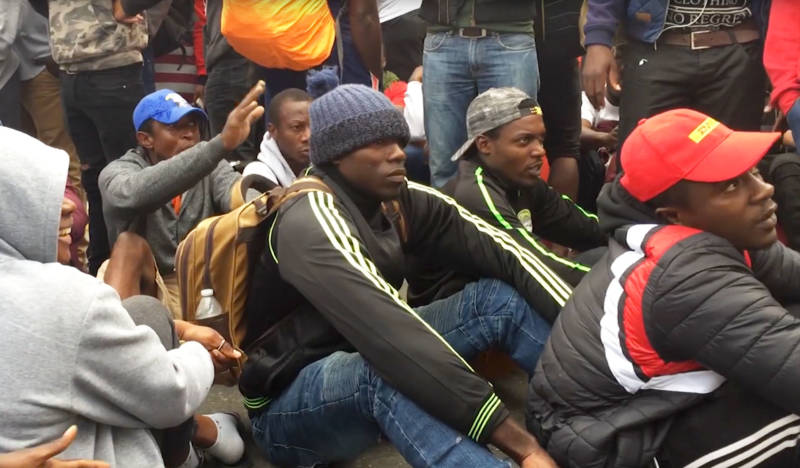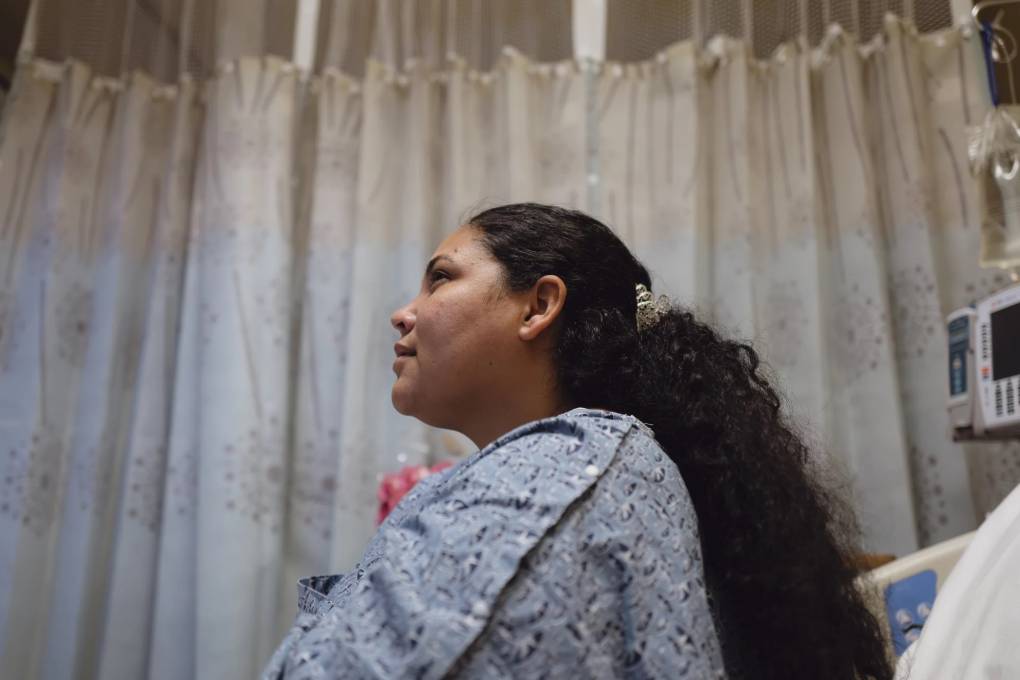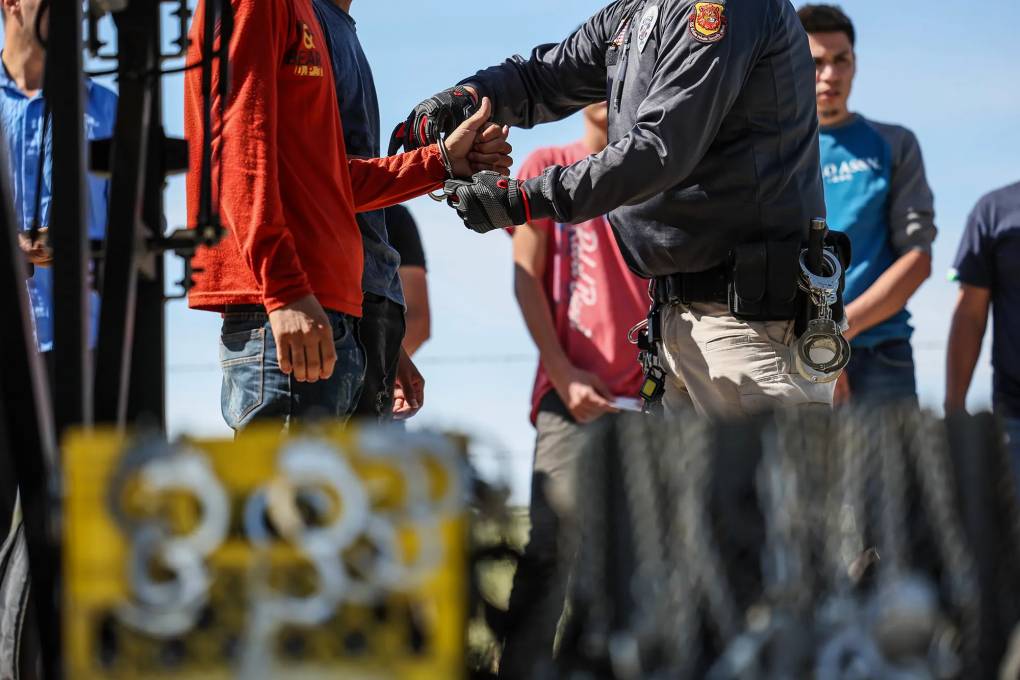For six days straight, no one was called from an unofficial waiting list of migrants waiting to hear from Mexican authorities about whether they would be transported across the border. The Cameroonians believe that’s because the asylum processing slots made available by the U.S. each day are now being filled by Central American asylum-seekers bribing Mexican officials.
In protest, over 100 Cameroonian asylum-seekers blocked the path of Mexican immigration vans Tuesday morning in Tijuana.
“It’s corruption plain and simple,” said an asylum-seeker named Beatriz, who asked that her last name not be published.
She said Central Americans have been paying bribes to the immigration officers. Beatriz has been waiting two months to cross into the United States and saw her number recently skipped over.
“I can’t wait another two months,” she said.
Asylum-seekers from Cameroon are, for the most part, members of the English-speaking minority in the country, and they have faced intense persecution since 2016. Many have traveled through South America, the jungles of Panama and Central America, only to run out of time and money south of the U.S. border.
“We’ve been suffering for two months. We have nothing to eat. We’re sick. Everything is finished,” said Stanley, an asylum-seeker who also asked that his last name be withheld.
Stanley was part of a group of eight African asylum-seekers that were asked to meet with Mexican officials in the hopes of ending the protest, which had drawn the attention of the newly formed Mexican National Guard.
After an hour-long meeting, the asylum-seekers and Mexican officials emerged with a “deal” that the African asylum-seekers would be able to verify the unofficial list each morning, to make sure the correct numbers were being called.
The group dispersed and let the immigration vans proceed, but not without a promise by many to hold Mexican officials to their word in the final stage of what has been a very long journey for them.



